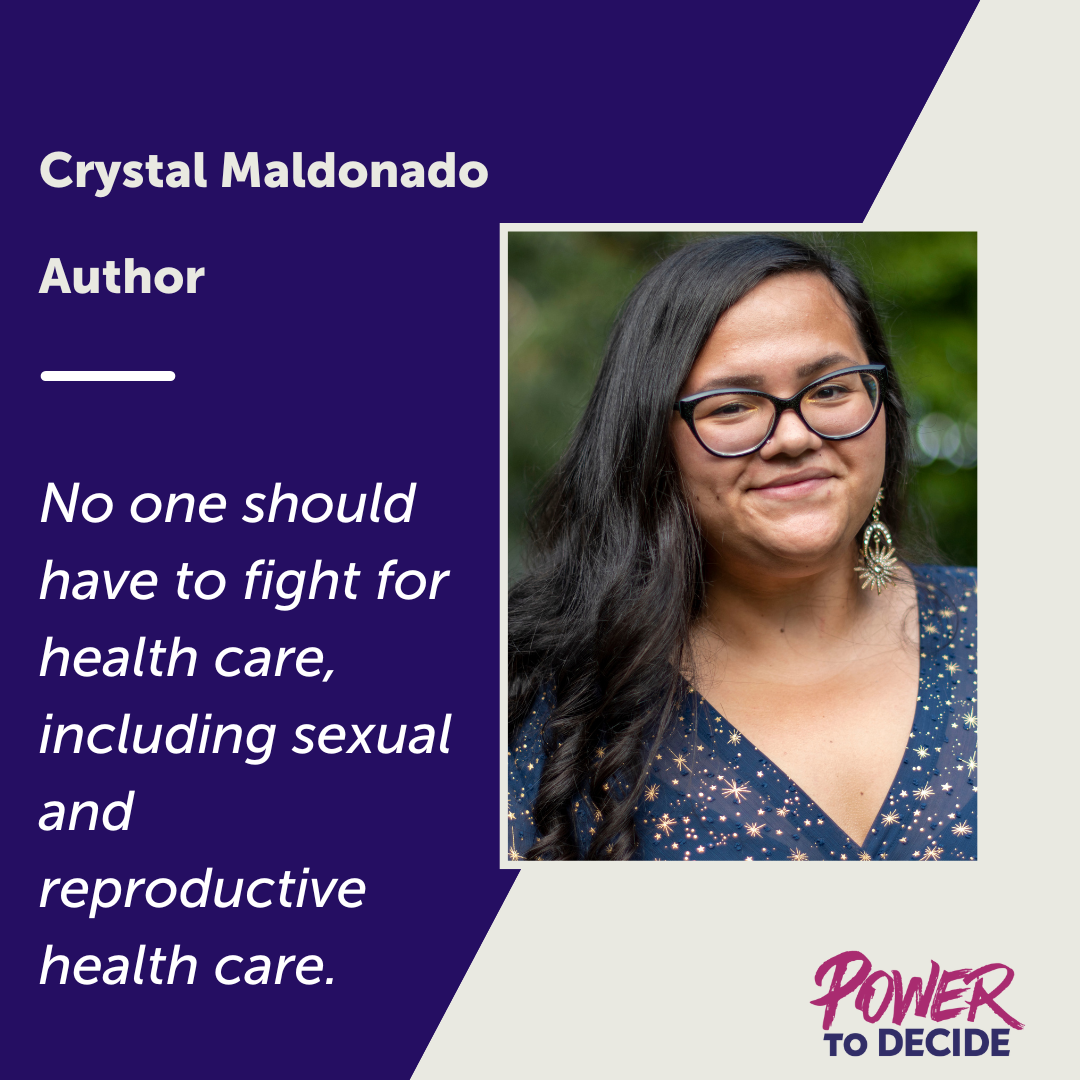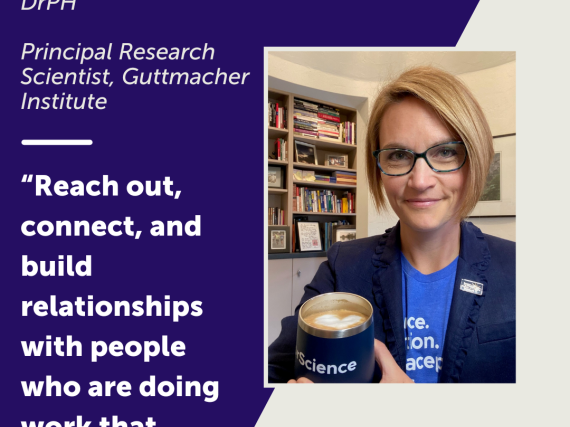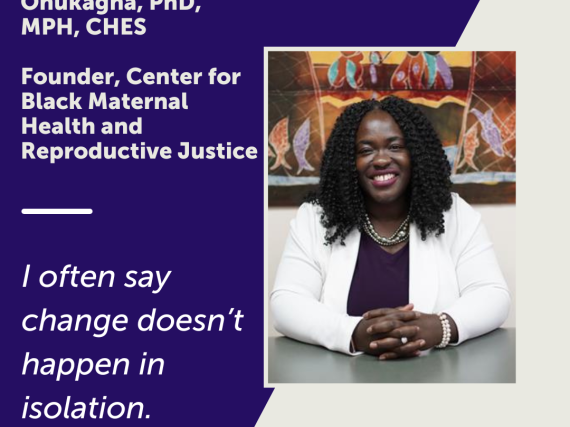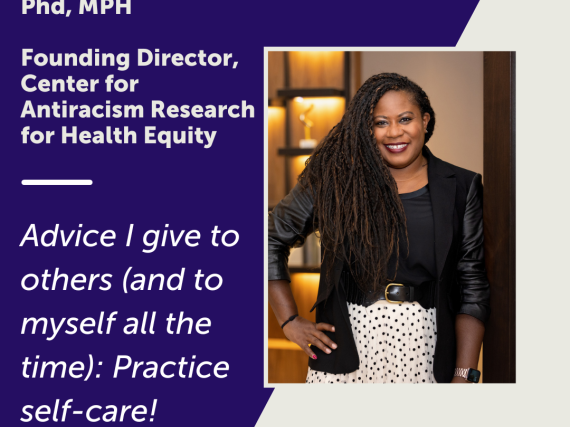October 2023 Power Player
At Power to Decide, we’re committed to uplifting the many individuals on the ground doing the work that matters most. Each month we highlight an individual who is championing the effort to support people’s reproductive well-being. Check out this month's Power Player profile.
Crystal Maldonado, BA in journalism and English, she/her
Young adult author of “The Fall of Whit Rivera,” “No Filter and Other Lies,” and “Fat Chance, Charlie Vega.”
What work have you done to ensure that all people have the information and access they need to make decisions that align with their intentions and improve their reproductive well-being?
I’ve been a supporter of reproductive health for as long as I’ve known what that has meant. For me, there is no other option than to be pro-choice, to push for everyone to have absolute autonomy over their bodies, and to uphold the importance of reproductive rights. As an author, I hope this has come through in my writing, which I like to think of as inclusive and feminist at its core. My characters reaffirm the importance of their bodily autonomy in so many ways, including their reproductive health. In “The Fall of Whit Rivera,” we see the main character, Whit, openly talk about her sexuality, her choices, and birth control. My hope is to help normalize these conversations for teens and families.
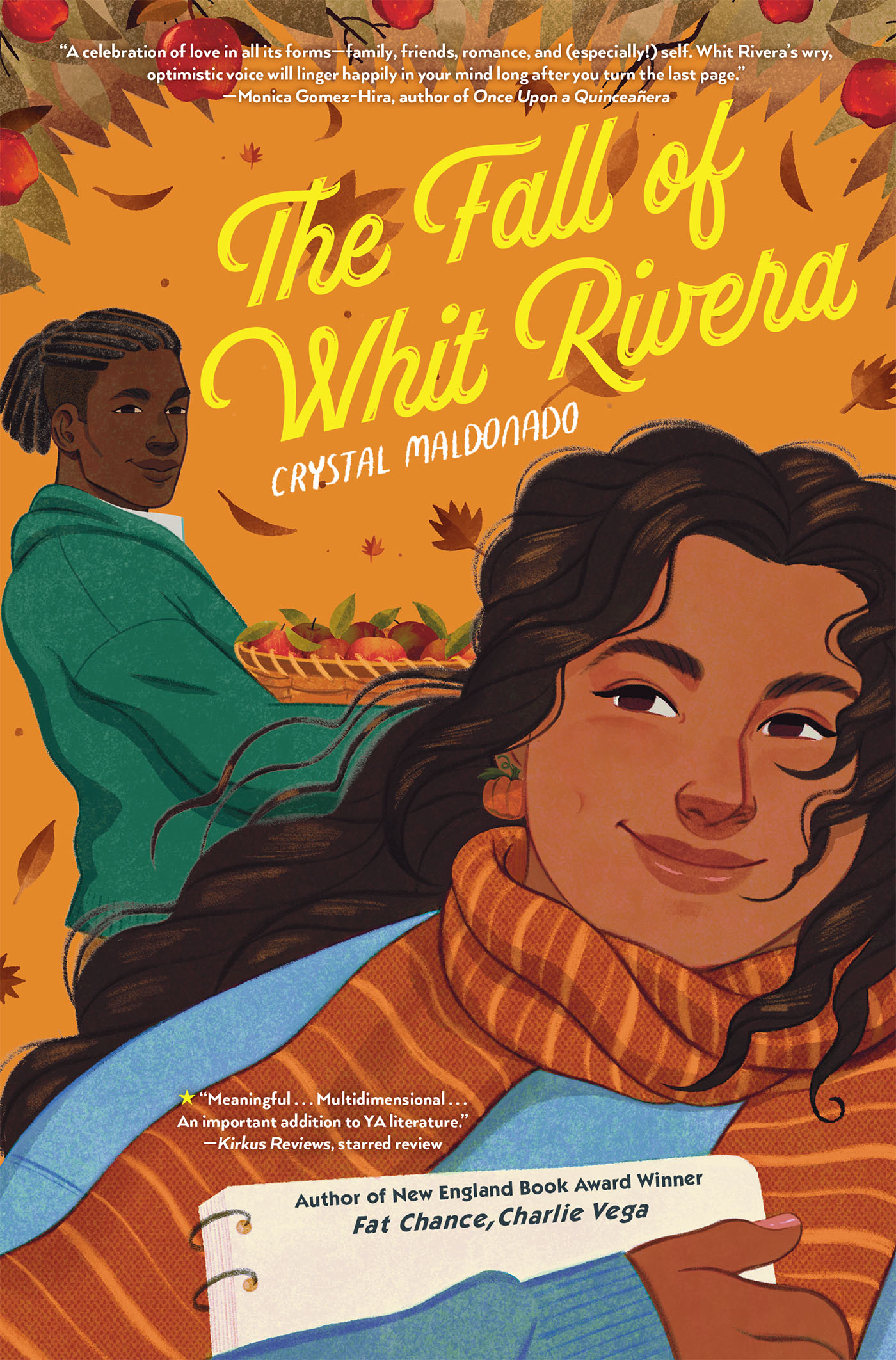
How did you get started in your field? What is your driving force?
Even as a kid, I loved reading. Around the third grade, while practicing writing an essay for a standardized test actually, I realized how joyful I found writing. I started to make up stories just for fun and by middle school, I was writing boy band fan fiction. One recurring element in all of these early stories was that its main characters almost always shared traits with me — fat, brown, dark- and curly-haired, wearing glasses — because I never felt like I got to see that in the books I was reading.
As I got older, I realized how powerful that was, how I had the ability to positively create the change for which I had yearned. With that understanding, I really took stock of what was important to me and sought to create books that echoed those values: prioritizing representation and inclusion, focusing on fat activism and body positivity, and pushing back on some of the narratives I’d always been taught through media by creating characters that forged their own paths.
There is so much power in writing and, for me, it inspires creativity and connection and allows me to use my voice for good.
What advice would you give to someone looking to effect change in the field that you currently work in?
We need more authors who are willing to talk about the hard things. Especially in this era where book banning is prevalent, teens and kids and even adults are relying on us to create and tell stories that are often shunned. No one should ever be ashamed of their identity, and we can do our part to help reiterate that through our books. The book community, in general, has been such a welcoming and open-minded space. So, if you’re an aspiring author wondering if there’s room for you or if your story is worth being told, let me reiterate: there is, and we need it. I think literature has the profound power of inspiring change, and it’s pretty incredible.
Why should someone care about ensuring that all people—regardless of who they are or where they live—have the information and access they need to live their best life?
To me, having the information and access to the resources you need to live your best life isn’t something that should be aspirational; it should be a basic human right. I think we all deserve that. No one should have to fight for health care, including sexual and reproductive health care. I genuinely believe society would be better if we uplifted our communities and ensured equal access to the things that matter most. We all deserve that.
Is there a highlight of your work that you’d like to share?
That I get to write about nuanced, complicated, flawed yet deeply beautiful fat, brown girls in my books means everything to me. I am especially proud of my latest, “The Fall of Whit Rivera,” as it also deals with what life is like with a chronic illness. Like Whit, I was diagnosed with PCOS when I was a teenager. Back then, I worried my illness made me unlovable, and I would have given almost anything to read about a character whose experience was similar to mine. I’m humbled to be able to share this story with the world. I hope it — like all of my books — reaches those who need it most, whether it’s a reader with an illness like Whit, a reader who loves the enemies-to-lovers trope, or a reader who spends all summer dreaming of apple picking.
